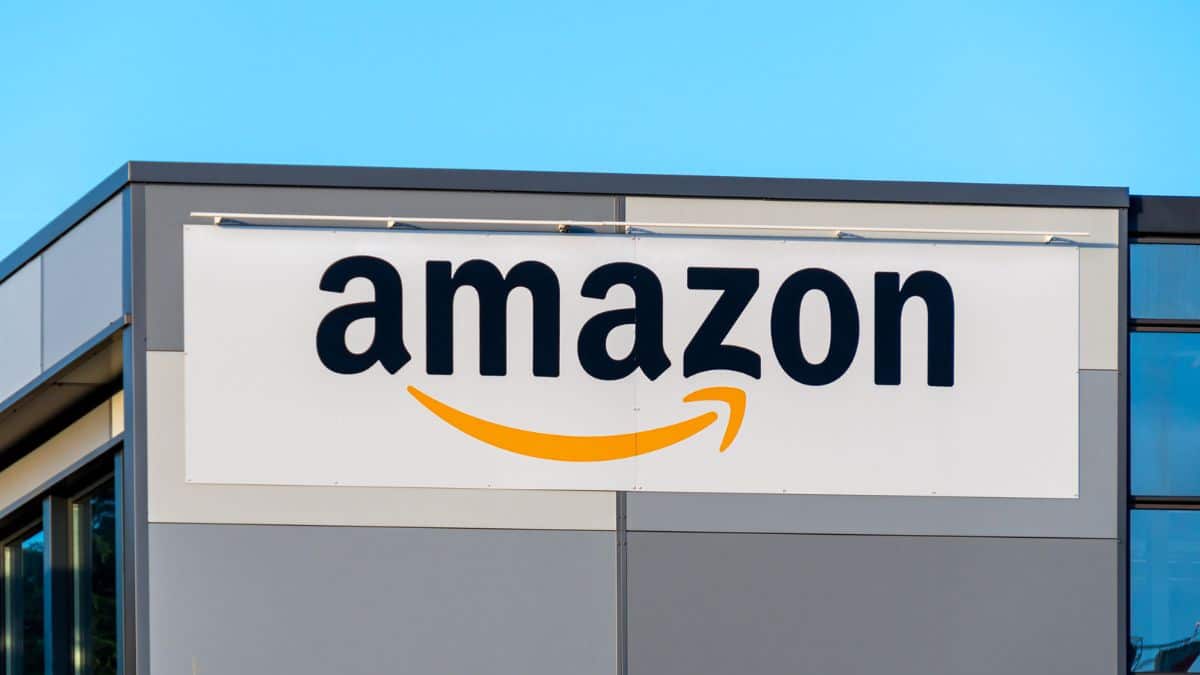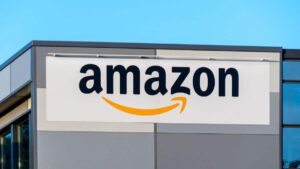Amazon Will Get Slammed With Ftc Antitrust Suit Later This Month, Report Says
Amazon will face an FTC antitrust suit later this month, according to a report, resulting in potential repercussions for the tech giant’s business practices. The suit is expected to tackle allegations of anti-competitive behavior and unfair market practices by Amazon, which may lead to significant consequences for the company’s operations and reputation.
This forthcoming legal action adds to the growing scrutiny faced by Amazon and highlights the ongoing concerns around monopolistic practices in the technology industry. As the case unfolds, it will undoubtedly shape the future of Amazon’s business and potentially impact the broader landscape of e-commerce.
Overview Of The Ftc’S Actions Against Amazon
The Federal Trade Commission (FTC) is set to file an antitrust suit against Amazon later this month, according to a recent report. The action is expected to have significant implications for the e-commerce giant.
:
The Federal Trade Commission (FTC) has been conducting an investigation into Amazon’s potential antitrust violations. This scrutiny has raised concerns about the company’s market dominance and its impact on competition within the e-commerce industry. A recent report suggests that the FTC will be filing an antitrust suit against Amazon later this month.
Let’s take a closer look at the FTC’s investigation and the allegations made against Amazon.
Ftc’S Investigation Of Amazon’S Potential Antitrust Violations:
- The FTC has been closely examining Amazon’s business practices and evaluating whether they are anti-competitive. This investigation aims to ensure fair competition and protect consumer interests.
- The regulatory agency is focused on how Amazon uses its market power to potentially stifle competition, harm small businesses, and hinder innovation in the e-commerce sector.
Summary Of The Allegations And Concerns Raised By The Ftc:
- Pricing practices: The FTC is concerned about Amazon’s pricing strategies, including the possibility of predatory pricing or engaging in anti-competitive practices that might lead to unfair advantages over smaller competitors.
- Market dominance: The FTC is exploring whether Amazon’s significant market share in various sectors, such as online retail and cloud computing, gives it an unfair advantage over competitors and limits consumer choice.
- Exclusionary and anti-competitive behavior: The FTC is investigating whether Amazon engages in practices that could restrict other businesses from competing fairly on its platform, potentially limiting competition and innovation.
- Data usage and access: The FTC is also examining how Amazon handles data from its third-party sellers and whether it uses this information in an anti-competitive manner or to gain an unfair advantage.
- Impact on small businesses: Concerns have been raised about Amazon’s impact on small businesses, particularly its ability to control pricing, steer consumer behavior, and dictate terms that put smaller sellers at a disadvantage.
These allegations and concerns, if proven, could have significant implications for Amazon’s business practices and the overall e-commerce ecosystem. As the FTC gears up to potentially file an antitrust suit, the outcome of this legal battle will undoubtedly shape the future landscape of the online retail industry.
Amazon’S Dominance In The E-Commerce Market
According to a recent report, Amazon will reportedly face an FTC antitrust suit later this month, highlighting the internet giant’s dominance in the e-commerce market. Challenges to Amazon’s market power are expected as regulatory scrutiny intensifies.
Highlighting Amazon’S Market Share And Its Impact On The Industry
Has become a topic of concern for many industry experts. With its extensive reach and substantial market share, the company has been able to establish itself as a force to be reckoned with. Let’s explore the implications of Amazon’s growth on the industry and the concerns that arise from its practices.
The Growth Of Amazon’S Business And Its Implications For Competition
- Amazon’s business has experienced exponential growth over the years, expanding into various sectors beyond e-commerce, such as cloud computing, streaming services, and smart devices.
- The sheer size of Amazon’s operations and its ability to leverage data give the company a competitive advantage over its rivals.
- As Amazon continues to grow, its actions and practices can greatly affect competition within the industry.
Discussing The Concerns Related To Amazon’S Practices And Their Effect On Smaller Businesses
- Pricing strategy: Amazon’s ability to offer competitive prices due to its size and scale can create challenges for smaller businesses that struggle to match those prices.
- Private label products: Amazon’s extensive private label offerings may create an uneven playing field, as the company has access to vast consumer data, giving it valuable insights to develop and promote its products.
- Search ranking influence: Amazon has control over the search algorithms on its platform, which can potentially impact the discoverability of products, favoring its own products or those from larger sellers.
- Data usage: Amazon’s access to a broad range of consumer data raises concerns about privacy and the potential misuse or unfair advantage in decision-making.
These concerns surrounding Amazon’s dominance highlight the need for regulatory scrutiny. As the company’s influence continues to grow, it is crucial to ensure fair competition and a level playing field for all businesses in the e-commerce industry. Stay tuned for updates on the upcoming FTC antitrust suit against Amazon.
Alleged Anti-Competitive Practices In E-Commerce
Later this month, Amazon is expected to face an FTC antitrust suit over alleged anti-competitive practices in e-commerce, according to a recent report. The suit could have significant implications for the tech giant’s dominance in the industry.
Amazon, the e-commerce giant, is facing an impending antitrust lawsuit by the Federal Trade Commission (FTC), focused on alleged anti-competitive practices in the industry. In particular, the FTC is targeting Amazon’s relationships with third-party sellers and its potential role in market manipulation.
These practices raise concerns about the harm caused to competition and consumers. Let’s take a closer look at the specific practices targeted by the FTC and the potential consequences of Amazon’s actions.
Detailed Explanation Of The Specific Practices Targeted By The Ftc
- Restrictions on third-party sellers: The FTC is investigating whether Amazon unfairly restricts third-party sellers from offering lower prices on other online platforms, effectively limiting competition and consumer choice.
- Unfair marketplace conditions: The FTC is addressing concerns that Amazon uses its dominance to impose unfair conditions on third-party sellers, such as charging excessive fees or forcing them to use Amazon’s fulfillment services.
- Data usage: The FTC is examining how Amazon collects and uses data from third-party sellers to gain a competitive advantage, potentially giving Amazon an unfair edge in the market.
Focusing On Amazon’S Relationships With Third-Party Sellers And Market Manipulation
- Steering practices: The FTC is concerned that Amazon may steer customers towards its own products over those of third-party sellers, thus distorting fair competition in the e-commerce market.
- Preventing seller independence: The FTC is investigating allegations that Amazon restricts third-party sellers from offering their products at lower prices on other platforms, limiting their ability to act independently in the market.
- Market manipulation: The FTC is exploring whether Amazon engages in anti-competitive practices by manipulating its marketplace algorithms to prioritize its own products or favor certain sellers, potentially harming fair competition.
Discussing The Potential Harm Caused To Competition And Consumers
- Reduced competition: The alleged anti-competitive practices under investigation can limit competition in the e-commerce market, creating barriers for smaller businesses and reducing consumer choice.
- Higher prices: If Amazon has been unfairly restricting third-party sellers from offering lower prices elsewhere, consumers may experience higher prices and reduced access to more affordable options.
- Market distortion: Unfair marketplace conditions can distort the competitive landscape, preventing fair and equal opportunities for all sellers. This can negatively impact small businesses’ ability to thrive and innovate.
- Consumer trust: Allegations of market manipulation and unfair practices can erode consumer trust in the e-commerce market as a whole, leading to decreased confidence in online shopping experiences.
The upcoming FTC antitrust suit against Amazon sheds light on alleged anti-competitive practices in e-commerce. The focus on Amazon’s relationships with third-party sellers and potential market manipulation raises important concerns about the harm caused to competition and consumers. The FTC’s investigation into these specific practices will determine the potential impact on the e-commerce market and the need for regulatory action.
Examining Amazon’S Treatment Of Third-Party Sellers
Amazon’s treatment of third-party sellers will face scrutiny as the FTC is set to file an antitrust lawsuit later this month, according to a recent report. The e-commerce giant could potentially face serious consequences as the investigation progresses.
Amazon, the e-commerce giant that has long dominated the online marketplace, is facing some serious accusations regarding its treatment of third-party sellers. As reported by various sources, including a recent report, the Federal Trade Commission (FTC) is set to file an antitrust lawsuit against Amazon later this month.
In this blog post, we will examine the accusations of unfair treatment towards third-party sellers and shed light on instances of alleged seller exploitation and unfavorable contract terms. Additionally, we will discuss the potential impact on competition and explore the options available to sellers affected by Amazon’s practices.
Analyzing The Accusations Of Unfair Treatment Towards Third-Party Sellers:
- Seller account suspension: One of the major concerns raised by third-party sellers is the seemingly arbitrary suspension of their accounts by Amazon. Sellers claim that their accounts can be suspended without warning or proper explanation, leaving them without an income source and often facing significant financial losses.
- Lack of transparency in account suspension: Sellers further allege that Amazon’s process for account suspension lacks transparency. They claim that Amazon offers limited information about the reasons behind the suspension and provides little opportunity to appeal or rectify the situation.
- Favoritism towards Amazon-owned products: Critics accuse Amazon of prioritizing its own products over those of third-party sellers. They assert that Amazon may unfairly promote its own products in search results, suppressing competition and diminishing the visibility of independent sellers.
- Manipulation of pricing and listing placement: Third-party sellers claim that Amazon exerts control over their pricing strategies, often leading to downward pressure on prices to the detriment of their profit margins. Additionally, there are allegations that Amazon gives preference to certain products by manipulating their placement in search results, resulting in a disadvantage for some sellers.
Highlighting Instances Of Alleged Seller Exploitation And Unfavorable Contract Terms:
- High commissions and fees: Critics argue that Amazon charges exorbitant fees and commissions, cutting into sellers’ profits and making it difficult for smaller businesses to compete effectively in the marketplace. These fees reportedly include referral fees, storage fees, and fulfillment fees, among others.
- Forced inclusion in Fulfillment by Amazon (FBA): Sellers highlight that Amazon often makes participation in its FBA program mandatory for competitive viability, even imposing higher fees on non-FBA sellers. This can pose a significant financial burden and reduce sellers’ control over their inventory and fulfillment processes.
- Intellectual property disputes: Sellers have expressed concerns about Amazon’s handling of intellectual property rights issues. There are allegations that Amazon favors larger brands in intellectual property disputes, potentially leaving smaller sellers vulnerable to false or unfounded infringement claims.
Discussing The Impact On Competition And Options For Sellers:
- Diminished competition: If the allegations against Amazon are proven, it could have serious consequences for competition in the online marketplace. Unfair practices, favoritism, and control over pricing and placement can stifle innovation and limit the choices available to consumers.
- Exploring alternative platforms: Sellers affected by Amazon’s practices may consider exploring alternative e-commerce platforms as a means of diversifying their sales channels and reducing dependence on Amazon. Platforms such as Walmart, eBay, and Shopify provide options for sellers to reach a wider customer base while potentially avoiding some of the alleged pitfalls associated with selling on Amazon.
- Legal recourse and advocacy: Sellers who believe they have been unfairly treated may choose to seek legal recourse, either individually or as part of a class-action lawsuit. Additionally, there are organizations and advocacy groups that work on behalf of small and independent sellers, aiming to address these issues and ensure fair treatment in the online marketplace.
The impending FTC antitrust suit against Amazon has brought to light serious concerns related to the treatment of third-party sellers. Accusations range from unfair account suspension practices to alleged seller exploitation and unfavorable contract terms. These practices, if proven, could have a detrimental impact on competition and limit options for sellers.
It remains to be seen how this lawsuit and the subsequent actions will shape the e-commerce landscape, potentially paving the way for a fairer and more level playing field for all sellers.
Potential Consequences For Amazon
Later this month, Amazon may face a potential antitrust suit from the FTC, which could have significant consequences for the e-commerce giant.
Speculating On The Possible Outcomes Of The Antitrust Suit:
- The FTC’s antitrust suit against Amazon is likely to have significant implications for the company and the e-commerce industry as a whole.
- If the suit is successful, it could result in various outcomes that may reshape Amazon’s business practices and its position in the market.
Examining The Potential Impact On Amazon’S Business Practices And Market Position:
- The antitrust suit could force Amazon to reevaluate its business practices and make changes to ensure fair competition in the marketplace.
- There may be a stronger focus on preventing anti-competitive behavior, such as giving preferential treatment to its own products over third-party sellers.
- Amazon’s market position could be affected, with potential consequences such as increased regulation, a loss of customer trust, or a decline in market share.
Discussing Potential Remedies That Could Be Imposed On Amazon If Found Guilty:
- If found guilty, there are several potential remedies that could be imposed on Amazon to address the antitrust concerns.
- Enhanced monitoring and oversight could be put in place to ensure compliance with fair competition standards.
- An option could be to impose restrictions on Amazon’s ability to acquire or merge with other companies, thus reducing its market dominance.
- The requirement to provide equal visibility to all products, including those from third-party sellers, could be another potential remedy.
- Financial penalties could be imposed as a deterrent and to compensate for any harm caused by anti-competitive practices.
The outcome of the FTC antitrust suit against Amazon remains uncertain. However, its potential consequences for Amazon are far-reaching, from reshaping its business practices and market position to the imposition of various remedies if found guilty. The e-commerce giant will need to navigate the legal landscape carefully and adapt to any changes that may arise from the suit.
Broader Implications For The Technology Industry
Later this month, Amazon is expected to face an FTC antitrust suit, which could have far-reaching implications for the technology industry as a whole.
Amazon’s upcoming FTC antitrust suit is set to have broader implications for the technology industry. This high-stakes case is expected to ripple beyond Amazon itself, potentially impacting other tech giants and shaping future antitrust actions. Additionally, regulatory changes might be introduced to address the antitrust concerns prevalent in the industry.
Let’s delve into each of these points in more detail:
Discussing The Potential Ripple Effect On Other Tech Giants
- Big tech companies like Google, Facebook, and Apple could face increased scrutiny as a result of the anticipated FTC suit against Amazon.
- The investigation may raise questions about competitive practices, data privacy, and market dominance across the industry.
- Other companies operating in similar markets could potentially face similar legal challenges, especially if the court’s decision in this case sets a precedent.
Examining How The Outcome May Shape Future Antitrust Actions
- The verdict of the FTC antitrust suit against Amazon will likely serve as a guidepost for future legal battles involving tech companies.
- The court’s ruling could establish important legal precedents and clarify the boundaries of anti-competitive behavior within the industry.
- The outcome might prompt regulators to take a closer look at consolidation and market power, potentially leading to stricter enforcement of antitrust laws in the future.
Speculating On Regulatory Changes To Address Antitrust Concerns In The Industry
- Antitrust regulators, inspired by the ongoing FTC lawsuit, may consider introducing new regulations aimed at curbing anti-competitive behavior in the technology sector.
- One possible regulatory change could involve imposing stricter limitations on market consolidation and cross-platform integration.
- The outcome of this case could instigate calls for greater transparency and oversight in mergers and acquisitions, as well as mandatory data sharing between dominant tech firms and their competitors.
The impending FTC antitrust suit against Amazon is expected to have far-reaching consequences for the technology industry. Beyond its direct implications for Amazon, the case might impact other tech giants, shape future antitrust actions, and prompt regulatory changes aimed at addressing concerns related to competition and market dominance.
The Ongoing Discussion And Debate Surrounding Big Tech
The ongoing discussion and debate surrounding big tech sees Amazon facing an imminent FTC antitrust suit, according to a recent report. The complaint is expected to be filed later this month, putting the company’s business practices under scrutiny.
Analyzing The Public Sentiment Towards Amazon And Other Tech Companies
- Public sentiment towards big tech companies, including Amazon, has been a topic of ongoing discussion and debate. The perception and attitudes towards these companies have evolved over time, influenced by various factors such as market dominance, privacy concerns, and perceived impact on small businesses.
- Understanding the public sentiment towards Amazon is crucial in evaluating the potential outcomes of the FTC antitrust suit. Here are some key points to consider:
- Many consumers appreciate the convenience and wide product selection offered by Amazon.
- Others express concerns about Amazon’s market dominance, fearing it may stifle competition and limit consumer choice.
- Some critics accuse Amazon of engaging in anti-competitive practices, such as using data from its marketplace sellers to gain an unfair advantage.
- It is essential to gauge the public sentiment accurately, as it can shape the outcome of the antitrust suit and drive discussions around the need for regulatory measures.
Discussing The Role Of Antitrust Enforcement In Maintaining Fair Competition
- Antitrust enforcement plays a vital role in ensuring fair competition in the marketplace. The primary goal is to prevent monopolistic practices that harm consumers and inhibit innovation. Here are key aspects to consider:
- Antitrust laws promote competition by preventing mergers that may create dominant market players.
- They prohibit anti-competitive practices, such as price-fixing, bid-rigging, and exclusive dealing.
- Antitrust enforcement aims to protect consumer welfare, promote innovation, and maintain a level playing field for businesses.
- In the case of the FTC antitrust suit against Amazon, the focus is on investigating potential anti-competitive behavior and addressing any market dominance concerns. The outcome of the lawsuit will be critical in determining whether Amazon’s practices align with fair competition principles.
Examining Potential Resolutions To The Issues Raised By Amazon’S Dominance
- Amazon’s dominance in the e-commerce market has raised concerns about its impact on competition. Here are some potential resolutions to address these issues:
- Strengthening antitrust laws and enforcement: This could involve stricter regulations and penalties for anti-competitive behavior, ensuring a level playing field for all market participants.
- Promoting competition through interoperability: Encouraging platforms like Amazon to open up their ecosystems and facilitate interoperability can foster competition and allow smaller businesses to thrive.
- Supporting alternative marketplaces: Encouraging the growth of alternative e-commerce platforms can provide consumers with more choices and reduce dependency on one dominant player.
- Finding the right balance between allowing market competition and ensuring consumer protection remains the key challenge. Striking a balance will require careful consideration of various factors, including consumer preferences, market dynamics, and the potential impact on innovation.
Overall, the ongoing discussion surrounding big tech, like Amazon, reveals the complexities involved in maintaining fair competition in rapidly evolving markets. Monitoring public sentiment, understanding the role of antitrust enforcement, and exploring potential resolutions are essential in addressing the concerns raised by Amazon’s dominance and promoting a healthy, competitive marketplace.

Credit: cordcuttersnews.com
Frequently Asked Questions On Amazon Will Get Slammed With Ftc Antitrust Suit Later This Month, Report Says
What Is The Potential Antitrust Suit Against Amazon?
The potential antitrust suit against Amazon refers to the investigation by the FTC into the company’s business practices and whether they have engaged in anti-competitive behavior.
Why Is Amazon Facing An Antitrust Suit?
Amazon is facing an antitrust suit due to concerns about its market dominance and potential anti-competitive practices that may hinder fair competition in the industry.
What Could Be The Impact Of The Antitrust Suit On Amazon?
The antitrust suit could have significant implications for Amazon, potentially leading to regulatory changes and increased scrutiny over its business practices, which could affect its market position and operations.
How Will The Antitrust Suit Affect Consumers?
The outcome of the antitrust suit could potentially impact consumers by influencing the competitiveness and pricing in the market, potentially leading to more choices and lower prices in the long run.
Conclusion
In light of the upcoming FTC antitrust suit against Amazon, it is clear that the tech giant may face significant challenges ahead. The allegations raised by the report emphasize the need for scrutiny and regulatory oversight in the digital marketplace.
As Amazon continues to dominate various sectors of the economy, this case has the potential to reshape the competitive landscape and safeguard fair market practices. The company’s vast influence, coupled with the concerns surrounding its business practices, makes this legal battle particularly noteworthy.
It will be interesting to see how Amazon defends itself and if any changes are mandated to ensure a level playing field for all market participants. As consumers, we rely on the effective functioning of the e-commerce ecosystem, and the outcome of this lawsuit will undoubtedly have far-reaching consequences for both businesses and consumers alike.














Post Comment